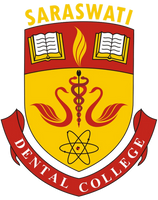
Oral complications are common in patients undergoing radiotherapy for oral cancer and can significantly impact quality of life. Effective evaluation and management of these complications are essential to minimize morbidity and optimize treatment outcomes.
1. **Mucositis**: Radiotherapy-induced mucositis is a painful inflammatory reaction of the oral mucosa, which can lead to difficulty in eating, swallowing, and speaking. Prevention strategies include meticulous oral hygiene, topical agents such as mucosal coating agents or low-level laser therapy, and pain management with analgesics or oral rinses containing anesthetic agents.
2. **Xerostomia**: Radiation-induced damage to the salivary glands often results in reduced salivary flow, leading to xerostomia (dry mouth). Patients should be encouraged to maintain adequate hydration, use saliva substitutes or stimulants, and practice frequent oral rinsing with fluoride-containing solutions to prevent dental caries and oral infections.
3. **Dysphagia**: Swallowing difficulties can arise due to radiation-induced fibrosis, mucosal inflammation, or muscle weakness. Speech and swallowing therapy with a multidisciplinary team comprising speech-language pathologists and dieticians can help optimize swallowing function and nutritional intake.
4. **Dental Complications**: Radiotherapy predisposes patients to dental caries, periodontal disease, and osteoradionecrosis (ORN) due to decreased salivary flow, altered oral flora, and compromised vascular supply to the bone. Pre-radiotherapy dental assessment and preventive measures such as fluoride application, dental extractions, and hyperbaric oxygen therapy for ORN management are crucial.
5. **Trismus**: Radiation-induced fibrosis of the masticatory muscles can lead to reduced mouth opening (trismus), impacting oral hygiene, nutrition, and speech. Physiotherapy, stretching exercises, and occasionally, botulinum toxin injections may be employed to improve mouth opening and functional outcomes.
6. **Infections**: Immunocompromised status secondary to radiation therapy increases susceptibility to oral infections such as candidiasis and bacterial infections. Antifungal or antibiotic therapy may be necessary, along with appropriate oral hygiene measures to minimize the risk of infection.
Regular follow-up evaluations by a multidisciplinary team, including oral medicine specialists, oncologists, dentists, and supportive care providers, are essential to monitor for and manage oral complications effectively. Patient education and support play a pivotal role in enhancing treatment adherence and improving patient outcomes during and after radiotherapy for oral cancer.


No Any Replies to “EVALUATION AND MANAGEMENT OF ORAL COMPLICATIONS IN ORAL CANCER PATIENTS UNDERGOING RADIOTHERAPY”
Leave a Reply